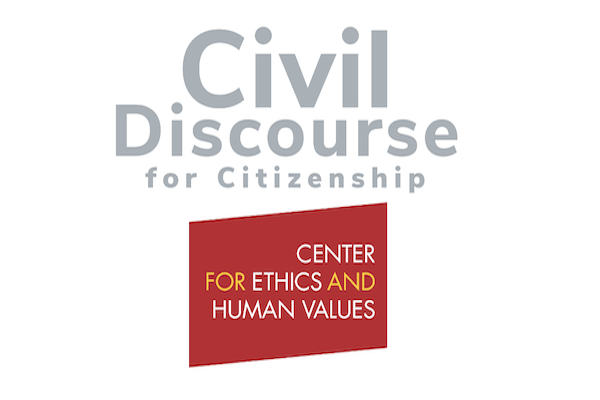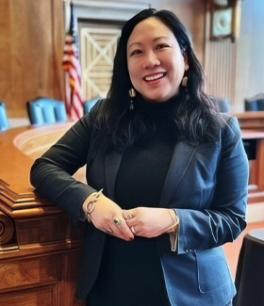
Artificial Intelligence (AI) is increasingly being used for adjudication and enforcement in U.S. immigration, refugee, and asylum processes. Department of Homeland Security (DHS) Secretary Alejandro Mayorkas recently stated that AI "could benefit nearly every area" of DHS operations. Advocates emphasize the promise of AI to increase efficiency and capacity, improve security, enhance training, and more. However, some stakeholders raise ethical concerns about using AI for these purposes. What are the trade-offs involved in using AI in the U.S. immigration system? Can anything be done to mitigate potential costs and address ethical concerns? Attend this student-moderated Forum to engage with different perspectives on these questions.
This student-moderated discussion is part of CEHV's "Civil Discourse Forums" series. Forum topics are selected by our undergraduate Civil Discourse Fellows trained in the 4Cs of civil discourse (Be Curious, Be Charitable, Be Conscientious, Be Constructive).
CEHV's Civil Discourse for Citizenship initiative is pursued with generous support from the Derrow Family Foundation and in partnership with Ohio State's Civil Discourse Project.
Speakers

Kevin Jackson
Kevin Jackson is a professor of Law and Ethics in the Gabelli School of Business at Fordham University. He is a leading scholar in business ethics and legal philosophy and has authored three books in these areas. Dr. Jackson has delivered seminars on business ethics and legal philosophy for organizations and leaders worldwide, and he has been a frequent commentator on the CBS Evening News, CNN, Fox News and National Public Radio. He recently spoke at an International Conference on Im/migration, AI, and Social Justice where he raised concerns about the potential for AI-driven immigration systems to shift our understanding of citizenship and moral worth.
Margaret Hu

Margaret Hu is the Davison Douglas Professor of Law, and Director of the Digital Democracy Lab, at William & Mary (W&M) Law School. She is a Faculty Affiliate with the Global Research Institute and Data Science at W&M, and a Research Affiliate with Pennsylvania State University’s Institute for Computational and Data Sciences. Her research focuses on the intersection of civil rights, national security, cybersurveillance, and AI. She is author of several notable works, including Biometric Cyberintelligence and the Posse Comitatus Act, Algorithmic Jim Crow, and Biometrics and an AI Bill of Rights. Dr. Hu previously served as Special Policy Counsel in the Civil Rights Division of the U.S. Department of Justice. She holds degrees from the University of Kansas and Duke Law School.
Moderators
Mary Paydock
Mary is a fourth-year student pursuing dual degrees in Philosophy, Politics, and Economics (PPE) and BA - Music Performance in the university's honor program. She currently serves as the President of the Undergraduate Music Council, Percussion Club and Vice President of PPE Society. Mary is the Production Assistant for Stage Crew at the School of Music and currently works as a legal intern at a Columbus law firm. Outside of academics, Mary enjoys baking and reading.
Isabel Rodriguez

Isabel Rodriguez is a junior pursuing a dual bachelor's degree in Psychology (BA) and Human Development and Family Sciences (BS) with a Minor in Nonprofit Management. On campus, Isabel serves as the President of the Latine Student Association (LSA). She is also a Head Swim Instructor for Bluefish Swim School, creating adaptive lessons for children with disabilities, and a general body member of Latine Educational Empowerment (LEE). Isabel is also a student teacher at the Schoenbaum Family Center at the A. Sophie Rogers School and a Registered Behavior Technician. Finally, she is a Morrill Scholar and a recipient of the LULAC Ohio Educational Foundation Scholarship.
